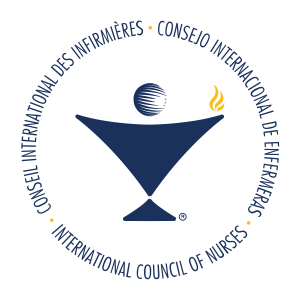
New ICNM report reveals the critical policies to retain nurses
“The need to provide greater support and a safer, more positive working environment that encourages individuals to join the profession is imperative.”
– Franklin A. Shaffer, President and CEO, CGFNS International, Inc.
Full Report Can Be Read Here
Geneva, Switzerland; 26 July 2018 – The International Centre on Nurse Migration (ICNM) today released a Policy Brief on Nurse Retention, which focuses on identifying which policies are effective in keeping nurses in work and practice, with the aim of informing National Nursing Associations (NNAs) and policy makers.
Written by Professor James Buchan, a consultant with the International Council of Nurses, international adviser to CGFNS International, Inc. and adjunct professor at the WHO Collaborating Centre at the University of Technology, Sydney, Australia, the new report looks at why improving nurse retention is so important. It identifies the cost, productivity, care quality, and workload and working condition impacts of nurses leaving organisations and the profession. It provides an overview of the evidence base, and focuses on developing a framework approach for policy interventions aimed at improving nurse retention.
The report highlights four linked aspects of policy analysis and implementation: (1) access to data and information; (2) development of a sustainable strategic approach to the nursing workforce; (3) development of a framework focusing on the practical implementation of policies; and (4) alignment or coordination of policy options.
“We know we’re facing a global shortage of nurses and the solution to that has to be as much about retaining the nurses we currently have as it is about recruiting new nurses,” said Howard Catton, Director of Nursing and Policy at ICN. “Evidence clearly shows that when nurses are enabled and supported to do the job they were trained to, they are less likely to leave the profession. We must provide them with the motivation that led them to join the profession in the first place – that is delivering the best quality care they can for patients. That means ensuring supportive/positive working conditions and environments including fair pay, career development, family friendly policies, work/life balance, etc. However, as the report makes clear, there is no magic bullet to improving retention: what we need is a planned, integrated and bundled package of measures.”
Professor Buchan said, “We have a global shortage of nurses. Too often the policy focus on ‘solving’ nursing shortages is only on recruiting new staff. All organisations must also pay as much attention to improving the retention of scarce, skilled and experienced nursing staff.”
“The need to provide greater support and a safer, more positive working environment that encourages individuals to join the profession is imperative,” said Dr. Franklin A. Shaffer, President and CEO at CGFNS International, Inc. “Nurses are at the forefront when it comes to providing quality care to patients, and employers have the duty to recognize and compensate nurses accordingly through programmes such as continued professional development, manageable working hours, and fair pay.”
Improved retention makes financial sense. When a nurse leaves an organisation, the report says, there is “reduced continuity of care, disruption to services, and a drop in overall productivity”. Every time a nurse leaves, the cost impact on the organisation will be equivalent at least several months’ pay, and often more, if the nurse has substantial experience and scarce skills.
A high nurse turnover rate can also contribute to negative impacts on care quality, whereas retention leads to improvement in patient safety and quality care for patients. Similarly, poor work environments and unsustainable heavy workloads can contribute to medical errors and have been related to stress and nurse “burn-out”, nurse absenteeism and high levels of staff turnover. This in turn can compromise the quality of care. In contrast, improved work environments can contribute to reduced stress, improve nurses’ ability to provide quality care, and can encourage nurses “to stay at the bedside”.
The International Council of Nurses (ICN) is a federation of more than 130 national nurses associations representing the millions of nurses worldwide. Operated by nurses and leading nursing internationally, ICN works to ensure quality care for all and sound health policies globally. www.icn.ch
The International Centre on Nurse Migration (ICNM) serves as a comprehensive knowledge resource created by CGFNS International. Inc. (formerly known as the Commission on Graduates of Foreign Nursing Schools) in partnership with the International Council of Nurses (ICN). ICNM emphasizes the development, promotion, and dissemination of research, policy, and information on global nurse migration. This resource center features news, resources, and publications widely available to policy makers, planners, and practitioners. http://www.intlnursemigration.org/
For further information contact Julie Clerget at:
media@icn.ch
Tel: +41 22 908 0100
www.icn.ch
@ICNurses
